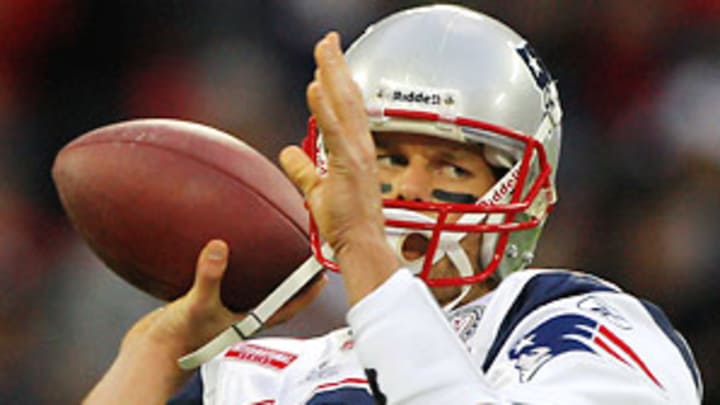Forget the 40 -- player interviews will count most at NFL combine

Sure, teams want to see every player work out. Teams want to collect testing numbers, which serve as a decent snapshot of a player's natural athletic ability. But those take a significant backseat to two other things: physicals and in-person interviews.
There's no need to explain why the physicals carry such weight. But a 15-minute interview? How much can teams really garner in that time? And when did these chats become such an important part of the evaluation process?
Several league sources I consulted trace the increasing prominence of the combine interview to around the time the Patriots began winning championships behind a collection of smart guys who love the game. Guys like Mike Vrabel, Tedy Bruschi, and of course, Tom Brady. Now almost every NFL team is trying to find players who are committed to becoming the best they can be at the sport they adore. And not just because of the money.
And so, when teams interview this year's crop of prospects at the combine, they'll be trying to identify these three things:
1. Passion for the game: It should be easy enough to identify this trait in a player, but it really isn't. The game tape is the most important indicator, of course. After that, teams try to read between the lines when listening to a prospect talk. They look at his facial expressions. They try to feel the passion, or lack thereof, when he explains why he likes football and why he wants to play pro ball.
At this stage of the game, most of these players have been coached up on what to say and what not to say. But teams don't want to hear that canned garbage.
Each prospect will say, "Absolutely, I love football." That's why it must go deeper. Players need to talk from the heart about what drives them to succeed and why they like the inevitable collisions that are sure to take place once pro football becomes their full-time job. Maybe share an example or two of putting in extra time to watch tape or get in an extra workout. Maybe say, if it's true, how they watch other college and pro games on Thursdays and Mondays and all days.
2. Values and character: Seems pretty self-explanatory, but in an age when NFL rookies are getting paid extremely well, teams want to make every effort to ensure they're investing dollars on the right type of person --- not just player.
This is typically the most important hurdle to overcome for players who have any off-field incidents on their records. Dez Bryant, who was suspended by the NCAA for apparently lying about his interactions with Deion Sanders, will face these questions time and time again until late April. Teams wants to see that players like Bryant are 100 percent honest and accountable for their actions. Lying, making excuses and deflecting blame will only make matters worse.
Teams also want to get a sense of who a player is -- where he grew up, what his home life is like on a routine day, what his interests are. Whether it's fair or not, interests like hunting and spending time with family are preferable to going out clubbing. Less chance for off-field incidents, I guess.
I even heard a story one time about a team that was going to take a player fairly high in the draft until it heard a radio interview in which he was asked the first thing he would do once he got drafted.
"I'm going to get me a Lamborghini," said the player, who eventually became a second-rounder and flamed out of the league in a hurry, "a gold Lamborghini."
Not exactly what teams like to hear.
3. Football intelligence: As the NFL game becomes more and more complicated thanks to the proliferation of no-huddle offenses and unconventional blitz schemes, a bigger premium is being placed on the football intelligence of any player -- whether a draft pick or free agent. If you are going to play defense against a Sean Payton-coached offense or combat a Rex Ryan-led defense, you'd better have a roster full of players who can make the proper adjustments on the fly.
During the combine interviews, teams usually have prospects go to the whiteboard and draw up one of the basic plays or schemes they ran in college. Ideally, if the player is a true student of the game, he should be able to easily recall the basics of schemes he ran for a number of years in college. To effectively handle a scheme, physically and mentally, a player should have a great gasp of the play's overall concept -- not just his own responsibilities, but also the duties of all the players on his side of the ball.
If a player knows his job -- but only his job -- that's a small red flag. If he can't even remember that, it's a big one.
An important component to being a student of the game is actually enjoying the time spent discussing and breaking down extra film. I've heard that Ryan likes to ask college players which player on their team held the "cowboy" remote in his hand when players watch film together. Whoever holds the remote is usually the leader of the group and the guy most likely to know everyone's assignment on that play. And thus, the most likely to make a favorable impression on the scouts and coaches grilling him during the combine interview.
